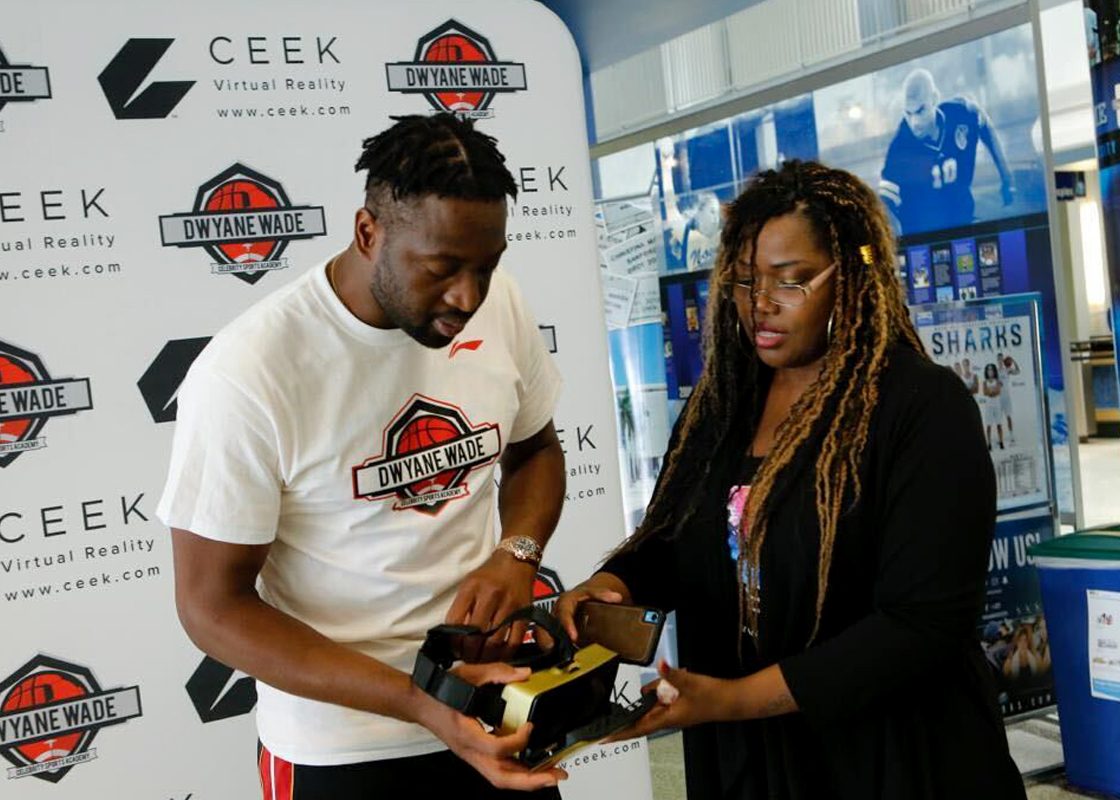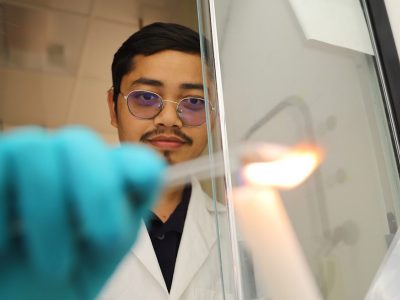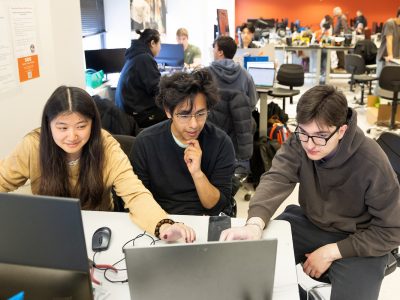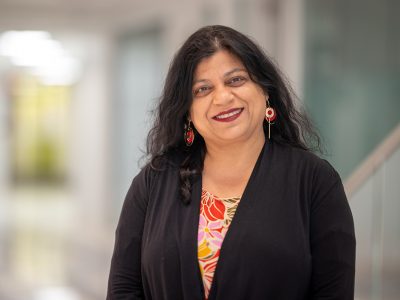None of it made sense.
Whenever Mary Spio ’98 wore a virtual reality (VR) headset, she would feel nauseous and get sick. She wasn’t alone. Other women who tried on a VR headset told Spio they felt the same way.
Spio set out to determine the root cause of these issues, even after some of the largest virtual reality companies rejected her idea that there was an issue specifically for women. What she discovered would revolutionize the VR industry, making the technology accessible and enjoyable for everyone.
“VR headsets involve the interpupillary distance [IPD] or the eye distance, and women and men have very different eye distances. The lower limit of everything that had been built at that time was at the upper limit for women, which meant when the average woman put on the VR headset, the eyeballs were being pulled apart and she suffered from audiovisual incoherence. They would get sick and couldn’t enjoy the experience as it was intended,” says Spio, who earned an electrical engineering degree from the College of Engineering and Computer Science.
Working with an ophthalmologist and a scientist that built nothing but lenses, Spio started studying VR headsets. She quickly learned that the dynamic range of the lenses being used was way outside the range for women and children, which motivated Spio to build the first headset with the IPD adjustment and featured the correct lens range for users of all ages.
For users who didn’t grow up playing video games, Spio also created a patent-awarded, easy-to-use controller that eliminated another barrier to entry.
“Men and women just see the world differently, and that carries over into VR. I filled this gap that no one was looking at. It was a gap they didn’t even know existed. In a way, I was able to build this technology and now we have more women using our platform,” Spio says.
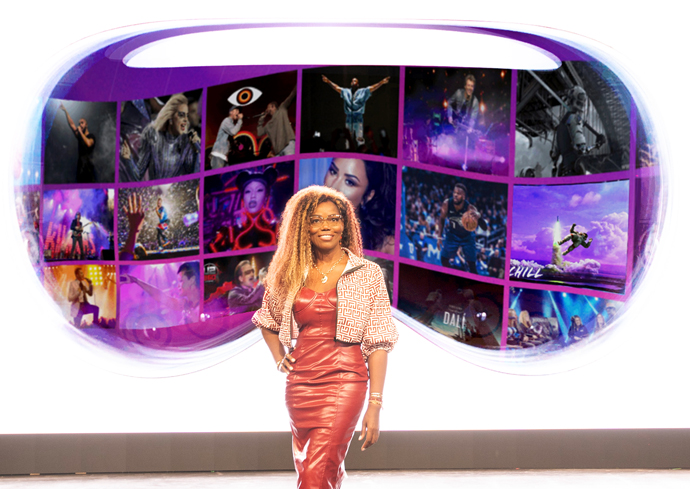
Today, Spio is the founder and CEO of CEEK VR, a developer of premium social virtual and augmented reality experiences that simulate communal experiences, such as attending a live concert, learning in a classroom or cheering on your favorite team at a sporting event. She has even collaborated with Naismith Memorial Basketball Hall of Famer Dwyane Wade on virtual reality learning experiences about becoming a better basketball player.
The technology is being leveraged by industries ranging from health care to entertainment to offer participants hands-on training that mimics real-world scenarios and can be more impactful than traditional learning measures.
Her career accolades include being named an NBC News 100 History Makers in the Making, receiving Boeing’s Outstanding Achievement in Electrical Engineering Award, and earning an Arents Award in 2017, the highest award Syracuse University bestows on its alumni.
Spio sat down with SU News to discuss her revolutionary career, why she’s driven to use the technology to help underrepresented members of society and the indelible impact Syracuse University has had on her life.
